Double tapping a 220v 40 amp circuit breaker #electrical
Double tapping, which involves connecting two or more wires to a single circuit breaker, can create several safety hazards, particularly if it is done on a 40 amp 220V circuit breaker. Some of the potential safety hazards of double tapping a 40 amp 220V circuit breaker to an unprotected 220V outlet mounted on the side of the panel include:
Overloading the circuit: Double tapping a circuit breaker can overload the circuit, causing it to overheat and potentially catch fire. This is especially dangerous when dealing with a 40 amp 220V circuit breaker, as this type of breaker is designed to handle a large amount of current and can cause significant damage if overloaded.
Electrical shock: Mounting an unprotected 220V outlet on the side of an electrical service panel can create a risk of electrical shock, particularly if the outlet is not properly grounded or if it is exposed to moisture or other hazards. This can be especially dangerous if the outlet is located in an area where people can easily come into contact with it.
Damage to the electrical system: Double tapping a circuit breaker can cause damage to the electrical system over time, as it can create hot spots and cause components to wear out more quickly. This can lead to more serious problems down the road, including electrical fires or system failures.
Violating electrical codes: Double tapping a circuit breaker is a violation of electrical codes in most areas, as it is not considered safe or acceptable practice. This can result in fines, legal liabilities, and other consequences for homeowners or contractors who attempt to do so.
Overall, double tapping a 40 amp 220V circuit breaker to an unprotected 220V outlet mounted on the side of an electrical service panel is not recommended and can create several serious safety hazards. It's always best to consult with a licensed electrician and follow electrical codes and best practices to ensure a safe and functional electrical system.
#electrical #homeinspection #electricalsafety
-
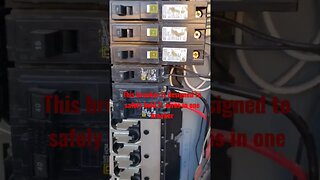 0:15
0:15
Home Inspector Dan
1 year agoSingle circuit breaker wired with a built in double tap. #electrical
21 -
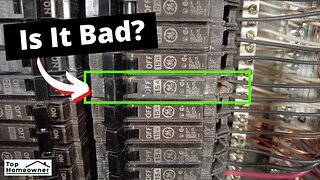 5:34
5:34
Top Homeowner
1 year agoRecognizing a Bad Circuit Breaker - DIY Home Electrical Safety
16 -
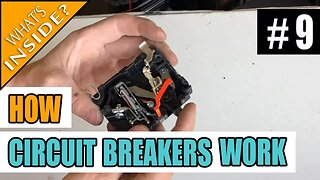 10:38
10:38
Electrician U
6 years agoEpisode 9 - How Breakers Work & Whats Inside A Breaker
20 -
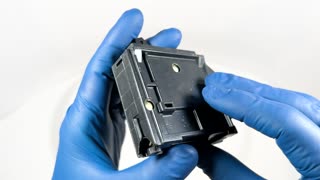 3:02
3:02
GUY IN GLOVES
4 months agoSquare D Homeline 15 Amp HOM115 Single Pole Miniature Circuit Breaker
10 -
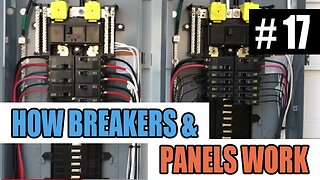 6:32
6:32
Electrician U
5 years agoElectrician Explains How Circuit Breakers And Electrical Panels Work
41 -
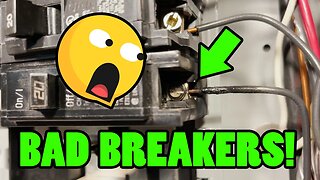 11:44
11:44
Electrician U
2 years agoHow to Tell if a Breaker is Bad
579 -
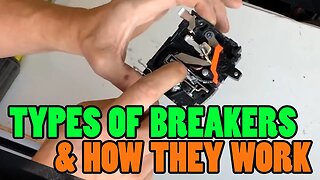 14:19
14:19
Electrician U
3 years agoCIRCUIT BREAKERS - How They Work & Different Types
429 -
 12:21
12:21
Electrician U
2 years agoWhy is there more than 200 A worth of breakers inside of a 200 amp panel?!
204 -
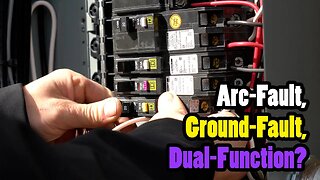 19:50
19:50
Electrician U
3 years agoArc-Fault, Ground-Fault, and Dual-Function Circuit Breakers Explained
486 -
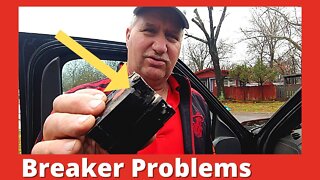 2:00
2:00
StraightArrowRepair
2 years agoUnusual Breaker Problems Electrical
12